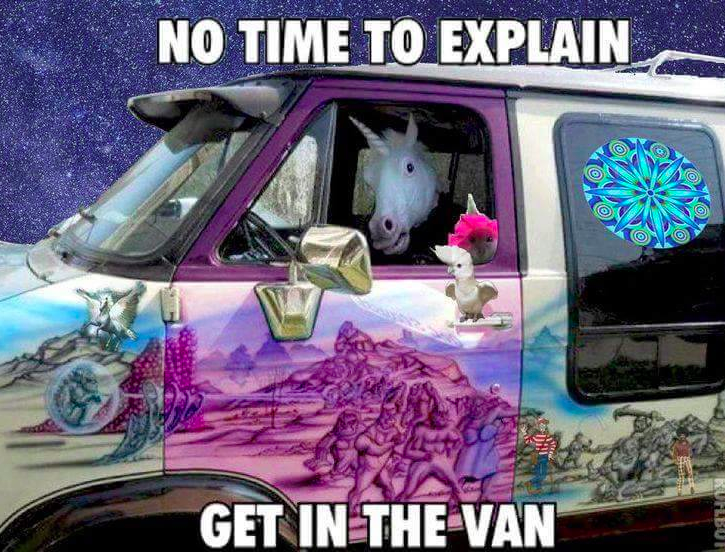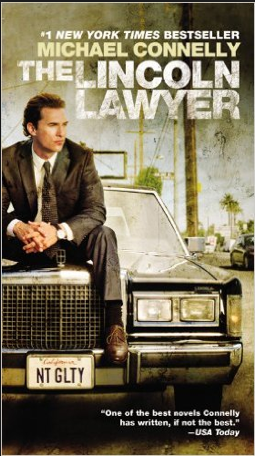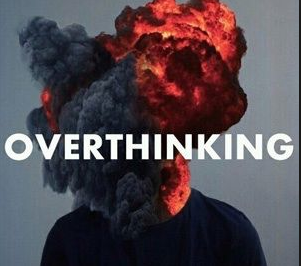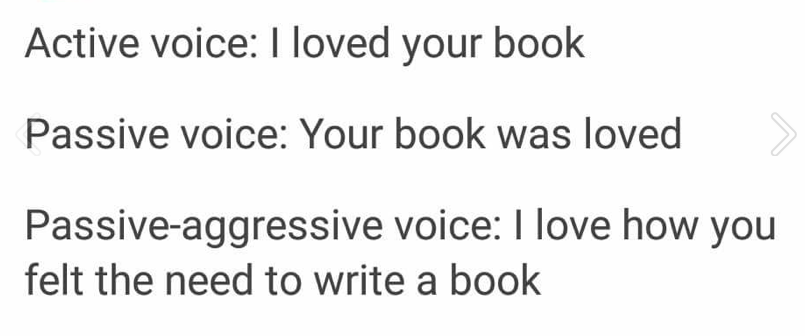
If you’ve been writing any amount of time you have been there—THE SUCK. This is where no matter how hard you try, you just cannot seem to move your story forward.
Though “normal” people might laugh at the above meme? Writers know that quicksand is freaking everywhere. You think you’re on firm footing and then down you go and the more you struggle, the worse it gets.
From personal experience combined with my experience with hundreds of writers the process can look like this.
Shiny Idea Time—You get the coolest idea ever conceived of and cannot believe such genius has never before been put to the page. It’s as if angels have come down and handed you a golden feather that will whisk you to the realms of literary nirvana.
First 20K Words—You’re flying high. You wonder why you ever had such difficulty with word count before. You cannot stop the flow. Perhaps you forget to eat, don’t want to sleep and you even dream of the world you’re creating.
20K-30K—This is when the pace begins to slow. It’s okay though. Perhaps you’re simply tired. It’s okay. This…THIS is the story idea you’ve been waiting for.
31K—Your pace slows dramatically. If you’ve ever been driving and suddenly had a flat tire? You know the feeling only this is in the brain-fingetips connection. There is a THWUMP, THWUMP, THWUMP…and your mental steering wheel jerks wildly. You might try to ignore, but eventually? You pull over to see what’s wrong.
But then? Nothing seems wrong. That’s weird. Mental tires all look properly aired. Maybe more caffeine is in order.

Perhaps you make it to 40K but by then? All the glitter is gone and you wonder what the hell happened. At this point, you likely will be visited by other story ideas. They see you on the side of the creative highway bewildered and seeming to need a ride. Though you don’t yet have your thumb out, these other newer and shinier ideas are quick to pull over and chirp, “Hop in!”
Just abandon that old clunker and GO!
It’s all so tempting. Especially since the longer you stay trying to fix your broken down WIP, the more shiny ideas come passing by. When you started your journey, the road was free and clear for you to floor your brain and write like the wind! Now? You can barely concentrate on where you placed your mental jack because temptation whizzes by every other minute.
I think this is a fairly accurate prediction regarding word count. If it weren’t then NaNoWriMo would be a cinch. But, alas, there is something about making it to 50K. It’s a number that leaves most who attempt such a feat broken down wondering what went wrong.

Image vis Flickr Creative Commons, courtesy of Yuya Sekiguchi.
Before you call a tow truck for the WIP and sell it for parts, I’d like to offer you some insight and maybe even some solutions to get you speeding down the Imagination Express once more.
Problem #1—The Antagonist is Weak or Nonexistent
This is one of the reasons I love teaching my Bullies and Baddies class (and yes we have one coming up SOON). After years of working with writers, it became clear to me that many didn’t understand—truly understand—the antagonist. It doesn’t help that a lot of the teaching on the subject can be terribly confusing.
I’ve heard classes where instructors used the term “antagonist” and “villain” interchangeably, but that is grossly inaccurate.
A villain is only ONE TYPE of antagonist.
All stories must have a strong core antagonist, because the antagonist is responsible for the story problem.
No antagonist, no story problem in need of solving. Too often, new writers spend an inordinate amount of time thinking about the hero and don’t give near enough thought to the opposition.
Problem #2—Plot Weak or Nonexistent
If a writer has failed to understand the antagonist (opposition) and truly know what this opposing force wants then the plot will simply disintegrate. When we’re crafting any work, we have to create a problem that is strong enough to bear the weight of the word count.
For instance, I’ve consulted many writers who had an excellent idea…for a short story. The problem was inherently too weak to sustain the bulk of a full-length novel.
Instead of plowing forward, often we can make some really simple adjustments to buttress that core idea. But if we don’t? It’s like trying to drive 90 pulling a crappy trailer. The wheels eventually WILL go flying off.
Often when we’re stuck, it’s the subconscious mind hitting the breaks. It’s trying to tell us our plot needs to be more robust or even clarified, which dovetails into my next point…
Problem #3—Too Many Ideas Crammed into One Book
Some writers might not have enough heft to the plot and others? Perhaps you’re loading on far too much. It’s not uncommon for me to talk to writers who are jammed up in a bad way only to find out they are trying to develop five ideas in one book.
Since the author failed to articulate what the book was about in ONE sentence (truly understand the antagonist’s agenda), then the author was at liberty to explore whatever cool rabbit trail presented itself.
This isn’t particularly bad, but it does require we STOP, get focused and maybe tease out those other ideas for subsequent books. You might think you only have one book, when you have two others freeloading and bogging down your momentum.
Problem #4—Wrong Protagonist
Casting the wrong protagonist is really easy to do, especially if we failed to properly develop the antagonist. Remember at the core of most great stories is an antagonist who’s essentially the shadow self of the protagonist.
For instance, in The Lincoln Lawyer Mickey Haller is a sleaze bag defense attorney. He represents drug dealers, pimps, prostitutes, and gang members. He has grown jaded with the justice system and prides himself on his ability to manipulate.

His greatest fear is representing a truly innocent man. What is the perfect story problem for such a character? Present him with an irresistible case that tosses him into what he fears the most.
Representing a truly innocent man.
This means that Connelly had to create a crime (case) where the client would undoubtedly look guilty and who would have enough cash to make Haller question any misgivings about taking on the case. Without a case where an innocent man is involved? The Lincoln Lawyer falls apart at the seams.
If Connelly had cast a lawyer who was all about truth, justice and the American Way? The plot would have been meh.
An attorney who works pro bono searching for truth is expected to risk everything to save the life of an innocent man. This would have been the wrong protagonist to cast for such a plot.
Fiction is the path of greatest resistance and Connelly, being a master, cast the one guy who probably would have run screaming from this case had he know was he was in for.
If your story seems to be sagging, check and make sure you’ve slated the right person for the job. Sometimes some quick fixes to who this character is or even giving that character some additional baggage might be enough to get you unstuck.
Problem #5—You Are Just Over Thinking

STOP IT! This is the one I am most guilty of. It’s why I am a HUGE fan of fast-drafting because then we simply don’t have time to over think every step we’ve made.
All writers have two different phases:
Oh, wow! I wrote that!
Oh. Wow…I wrote that.
We all think we are geniuses…only to later read the exact same section and become convinced we are little more than brain-damaged chimpanzees banging away on a keyboard. It happens, especially when we are in the thick of the story. It is tempting to go back and perfect, but resist the urge to go BACK. Feel free to correct typos or make notes (in a different color) but do not change your writing.
Your subconscious could be planting seeds and what looks like a weed might just be the greatest plot-twist EVER germinating. Just leave it alone and stop being so hard on yourself.
Remember, no unfinished-but-perfect book has ever hit the New York Times best-seller list, but a lot of crappy finished ones have 😉 .
Truthfully, if you finish and just cut yourself a break you will likely go back to those parts you were going to chop and see they aren’t nearly as bad as you’d imagined. Remember that while your subconscious is there to help you? Your ego is a selfish passive-aggressive diva who can’t stand that something might be prettier than she is.

You really want to be hard on yourself? Fine, just do it in the correct places. Instead of nitpicking the life out of your prose? Get your @$$ in the seat and keep pressing. And just so y’all know? While I have one finger pointed at you, three are pointing back at me.
Before we go…
I have three classes to help you out with all of this. W.A.N.A. classes are all easy to use from home. All you need is an internet connection and pants are totally optional. Recordings are included in case you miss or you just want to refresh the information.
If your antagonist is weak and you need help learning to plot? Bullies and Baddies. If your story idea is jumbled, confusing or unformed? Your Story in a Sentence. I’ve been doing this a long time and I can almost always tell what is wrong (or right) with a plot by the log-line. The first ten signups are guaranteed to have their log-line shredded and fixed in class and for FREE.
Worried about the strength of your actual writing? Are you starting your story in the correct place? Take my First Five Pages class. Right now I am offering double pages for all Gold and Platinum signups (and I have only done this once before and that was almost a year ago). Friends, family and critique groups can only offer so much. So if you want a set of ruthless eyes on your work? I am here to help!
What are your thoughts? Do you nitpick your work to death? Is your computer filled with stories that started out golden then fell flat? Do you struggle with being able to just FINISH? Have you thought you might have cast the wrong protagonist? Are you stuck?
I love hearing from you!
To prove it and show my love, for the month of MAY, everyone who leaves a comment I will put your name in a hat. If you comment and link back to my blog on your blog, you get your name in the hat twice. What do you win? The unvarnished truth from yours truly. I will pick a winner once a month and it will be a critique of the first 20 pages of your novel.
April’s WINNER of my pages contest is:
C.E. Robinson! Please send your 5000 word WORD document (double-spaced, New Times Roman, one-inch margins) to kristen at wanaintl dot com and CONGRATULATIONS! *throws confetti*
ONE MORE CLASS!!!
May 16th I am holding When Your Name Alone Can Sell—Author Branding. We can have the greatest book in the world, but if no one knows it exists? Yeah. These days discoverability is a NIGHTMARE, but I am here to help you learn how to get your work seen…so it can then be loved. Best of all? I’m not trying to change your personality. I’m here to give you the time to do what you do best…WRITE.
Also, for more help with branding and social media, if you don’t yet have a copy… make sure to pick up Rise of the Machines—Human Authors in a Digital World on AMAZON, iBooks, or Nook.








28 comments
7 pings
Skip to comment form
I’m not feeling stuck exactly, but my story does keep growing and growing and refusing to end, so that’s a type of being stuck. I like all the chapters I’m writing, but hey, it has to end eventually, right? I hope?
I think it’s a #3 problem — too many ideas, characters, subplots, etc. crammed into one book. My current plan is to finish the last ten chapters (BWAHAHAHA — sorry, I’ve been saying “last ten chapters” for a while now) and then reassess the whole shebang. Hopefully what’s most important will pop out and it will be obvious what needs to be cut (albeit painful, I’m sure)
And to think that I originally thought this was going to be a short story!
I know precisely why my in-process, radically revisited retelling of the Iliad keeps grinding to a halt. Everything is in place, including several very different-from-each-other, well-rounded, and equally kick-ass antagonists (Odysseus, Achilles, Hector), but I don’t know the protagonist – Ajax – well enough. Ironic, but true.
We chug along together for pages, then he suddenly stops, turns to me, and says, “You aren’t paying attention to ME, are you?”
“Yes I am!”
“Really? You know what I had for breakfast this morning, but you don’t know the real reason why!”
“…oh…right…”
I’m stuck, but I’ve been driving in a mud pit since the first page. Part of the problem at first was the antagonist because it took me awhile to figure out who it was and why. Once I figured that out, I got excited for my story again because the plot pieces fell in place. Since then, I’ve struggled with voice (the protagonist has a voice that’s different from my natural one) and with over-thinking.
I’m going to dig my tires out of the mud and drive until I hit another patch of deep mud.
Reblogged this on authorkdrose.
Reblogged this on Jeannie Hall Suspense and commented:
Is your story stuck? Try this!
Here I am, at that 40k mark, thinking the exact same thing! My issue definitely falls back on the antagonist. I even outlined the manuscript first (first time doing that) and though I knew what was supposed to happen, it lost all its fizz. And if it loses its fizz for the writer, imagine how the reader will feel. I shall go back and reexamine with your fine words in mind.
I was wondering if the ‘protagonist’ can just be conflicting feelings inside of the main character’s heart?
Kristen has blogged about this before, so I hope she sees this and links to one of her posts. But basically, no. There must be an external struggle as well as an internal one.There needs to be a character outside your main one who creates the story problem for the protagonist to solve. Although, it’s great when the protag has to overcome her own issues as well in order to beat the antagonist. In fact, when your antagonist’s goals are opposite your protagonist’s and when your antagonist is able to poke at your protagonist’s deepest weakness, that’s when you have magic on the page.
My problem was the protagonist being too much like a blancmange: pale, wobbly and flavourless. Even I got bored, and the story laid down and died of apathy around, you guessed it, the 30k mark. Problem sorted and on with the rewrite!
The dreaded writer’s suck – been there, done that – got the tee shirt. You learn, better your writing and move on.
Reblogged this on ugiridharaprasad.
90% of the books I stop reading are just overstuffed with plot. Plot, plot, and more plot! Allll the plots. It’s just too much. Simple is better, and I really have to remember that for my own books.
This totally resonated with me. Fabulous to read the post to reinforce what I need to do to keep my story moving on.
I can’t help feeling you posted this just for me. 😀 Well, maybe not, but it sure seems that way. I’m reasonably sure my problem is I’ve no real core antagonist. My protagonist has plenty of internal questions and external irritations/roadblocks, but I don’t know what actually drives the problem. And of course you’re right: that’s why I can’t get a log line.
I’ll sign up for your class, though as I said, I may not be able to “show up.” But at least I’ll have the recording. Thanks for this. 🙂
Reblogged this on Don Massenzio's Blog and commented:
Here’s a great post with reasons for your writing getting stuck
Larry Brooks has the cure, everyone should read his books. If you plot and design the important aspects of story in advance before writing, it is hard to get stuck. Knowing what goes where, why and what it must do to be a story is huge.
Well said.
Which book do you recommend?
If you are thinking about ordering Rise of the Machine, stop thinking and just do it. It’s awesome. I recommend it all the time.
Author
Awwwwww (((HUGS))). Thank you!
I need to pull open my latest manuscript and really analyze my antagonist. Now that you say it, I’m not sure I have the right one. Two keep rearing their heads. I chose the more villainous one to focus on, but now I am not sure. ..
I’m so stuck I can’t even finish…
This was very helpful! Thank you! I’m in the process of writing two books right now. This advice will definitely help me during my writing process.
Reblogged this on Random Musings.
I agree, The story line, the antagonist, the protagonist and just the right number of twists and turns int the story to make it interesting make or break the story. I have found that often I have to throw out the first 20% of the WIP during the editing phase to make this happen.
The end always has to be right. I am one of those readers who has to read the end of the book to decide if I want to read the entire thing. I tend to be that kind of writer too. I need to know how a book ends before i write much of it. This gives me clarity. If I don’t like the ending, I put it aside and work on another project until I have the ending that I want.
Every story I write hits that spot at 20-25K. I don’t know what it is about that point that makes things slow down.
This post is written at an opportune time for me. My WiP is just under 30k and I can feel the floundering. I have a suspension that it’s a combination of problem #1 and #2, although the problem may be #4 and I just don’t see it yet.
Nice and helpful post. I believe my book has a strong beginning and end and the middle is still a work in progress. Not sure why. There are alot of ideas crammed in but have read some YA novels that have many ideas and characters. It is just hard to keep track of it all and make sure everything is covered in the end. Love your comment about unfinished-but-perfect-books. So true and definitely something to remember.
[…] Source: 5 Reasons Your Story is Stuck […]
[…] 5 Reasons Your Story is Stuck Kristen Lamb’s Blog […]
[…] 5 Reasons Your Story is Stuck, from Kristen Lamb’s Blog: It’s happened to everyone… you’re going along in your manuscript, writing like the words will never stop flowing. And then suddenly, they do. But why? Excerpt: “Writers know that quicksand is freaking everywhere. You think you’re on firm footing and then down you go and the more you struggle, the worse it gets.” […]
[…] Weiland has 6 tips to help you finish your book, Kristen Lamb lists 5 reasons your story is stuck, and Janice Hardy has a 2-part series on getting past stuck and staying focused to get your novel […]
[…] https://warriorwriters.wordpress.com/2016/05/02/5-reasons-your-story-is-stuck/ […]
[…] I think at times we all lose our way in the stories we tell, get to a point where we cannot see the wood for the trees, well if you hit the brick wlaa this post may help you identify problem areas, I know some seem obvious but they are usually the ones we over look… https://warriorwriters.wordpress.com/2016/05/02/5-reasons-your-story-is-stuck/ […]
[…] Many thanks for the acrostic image from Planet Smarty, and for the “van unicorn” from Kristin Lamb’s Blog. Thank you, BuzzFeed and Mallory McInnis for the “Frozen T-Shirt Race” image. Many […]